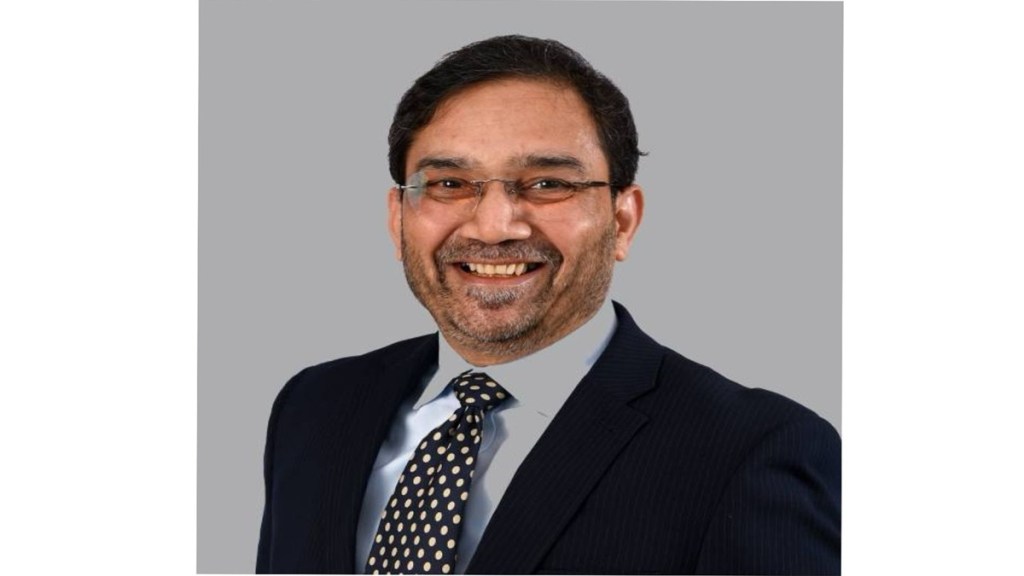Atul Daga likes fast cars and waits eagerly to get his hands on the latest gadgets because he simply cannot resist cutting-edge technology. When it comes to balance sheets, however, he’s a lot more grounded, a purist – disciplined, meticulous. For the chief financial officer of UltraTech Cement, “cash is reality”. That’s a mantra that has guided his decades-long career in finance all the way to his current role.
His taste for cars and gadgets may appear at odds with conservative financial philosophies but for Daga, they are united by the very traits he value the most—responsiveness, control, and precision. He’s converted his workspace into a paperless zone. And his latest possession is a set of Google’s AI-enabled ear buds that can translate content real-time from a variety of languages. “Always exploring,” he chuckles, adding quickly that his passion for state-of-the- art technology never ever impinges on his core belief in frugality and value creation.
Daga’s relationship with numbers began early. His father, an engineer at a steel factory, taught him to calculate weights and volumes manually, often using production registers long before the era of spreadsheets. “Compare, be frugal, but make the right decisions,” his father advised him—a value that Daga holds close to his heart.
After breezing through the CA entrance exam and doing a short stint at an accountancy firm, Daga realised he was more interested in evaluating numbers and finding intrinsic value or “true worth,” as he puts it.
Thus began his journey in corporate India, and he soon found himself at Rajashree Cement (now UltraTech Cement) – then a remote unit within the Aditya Birla Group.
“Nobody paid attention to me,” he recalls, talking about how he set about building the financial model for the plant—starting from mining costs down to the life-cycle of a dumper’s tyre. Being fairly junior, it was a challenge getting the senior executives to take him seriously. But he persevered, poring over data, crunching the numbers. The experience laid the foundation for his rigorous, ground-up approach to business.
The turning point for Daga came when he helped organise and analyse data for the first cross-functional conference of the Aditya Birla Group, which was then made up of fiercely independent verticals. He unearthed inefficiencies across plants, comparing metrics like overtime costs which won him praise from the chairman Aditya Vikram Birla. “After that, every business wanted me at their table,” Daga recollects with a smile.
He then went on to become executive assistant to Aditya Birla – a role he describes as the most enriching period of his life. “I was his blue-eyed boy,” Daga says remembering the senior Birla fondly. Their working relationship gave him rare exposure across functions – finance, marketing, manufacturing – which he says transformed him from a numbers man into a well-rounded professional.
As a leader, Daga champions autonomy. He encourages his team to take risks within boundaries, promising to have their backs if things go wrong. “It’s like pushing a child into the pool—they learn to swim,” he says. His teams are now highly independent and often work without being supervised on a daily basis.
But that doesn’t mean they can get away with less than top class work. Daga has exacting standards. A document with misaligned columns or a misplaced header can throw him off. “It’s the small steps that lead to success and success is no small feat,” he says. This philosophy extends from formatting to financials: every decimal must earn its place.
Looking back at a career filled with lessons, resilience, and reinvention, Daga says with equal measures pride and gratitude, “I’ve never had to update my CV.” Whether it’s building a business model from scratch or testing out the latest in AI-powered tech, he approaches both with the same mindset—focused, deliberate, and detail-oriented. And perhaps that consistency explains why, through decades of change, opportunity has always found him.
